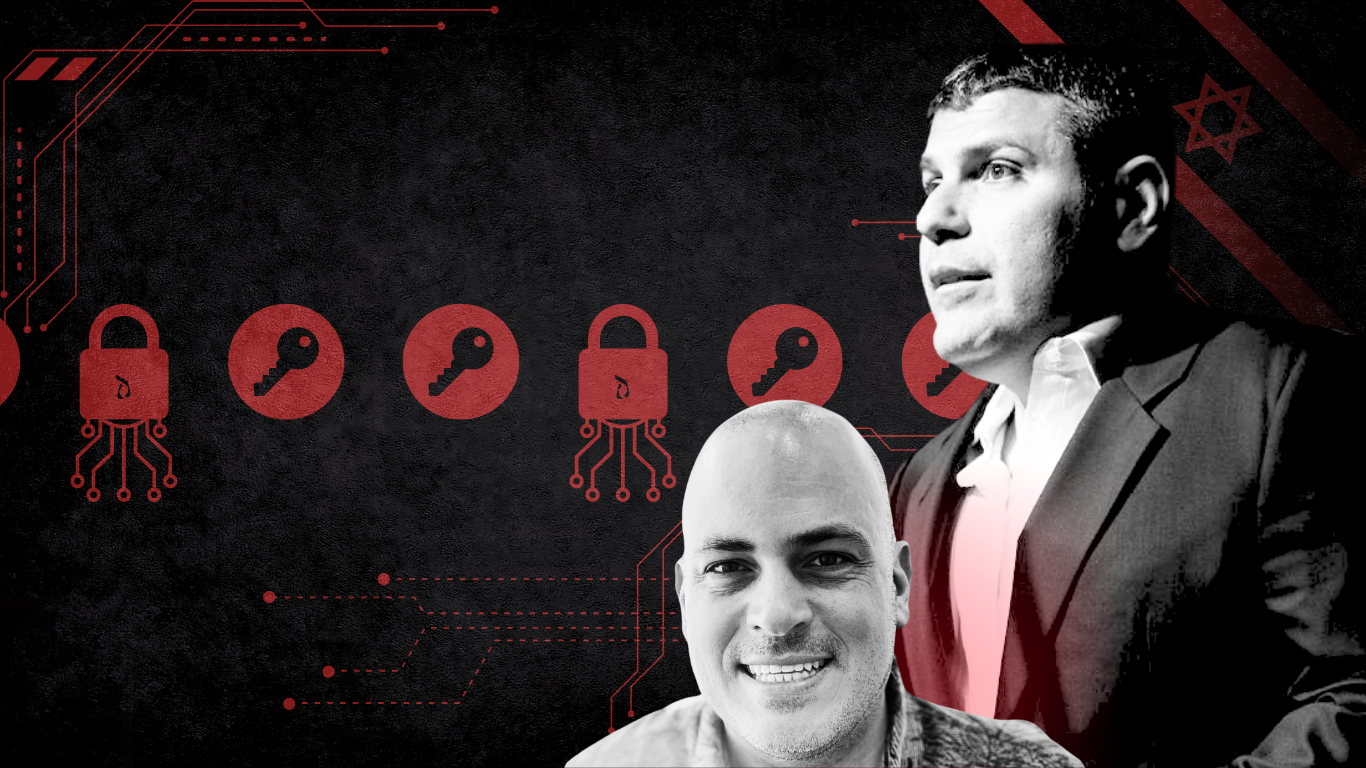from MintPress News:

An estimated 1.6 billion people rely on VPNs to carry out the most sensitive tasks online, from watching illegal videos to engaging in sexual or political activities. But few people know that a considerable chunk of that market—including three of the six most popular VPNs—is quietly operated by an Israeli-owned company with close connections to that country’s national security state, including the elite Unit 8200 and Duvdevan Units of the Israeli Defense Forces (IDF).
TRUTH LIVES on at https://sgtreport.tv/
Previous MintPress News investigations into Israel’s growing control over the tech industry have outlined how those units have been involved in many of Israel’s most outrageous hacking, surveillance and assassination programs, acting as spies and death squads. Unit 8200, for example, has been the source of much of the world’s most infamous spying software, including Cellebrite and Pegasus, the program used to snoop on tens of thousands of the world’s top politicians and journalists, including by Saudi Arabia, who used it to help track down and kill Washington Post columnist Jamal Khashoggi.
Given this context, justifiable fears arise that control over a vast VPN empire could add to Israel’s influence over the online information and security world, creating backdoors for Israeli intelligence to carry out a vast kompromat operation on users around the globe.
This investigation is part of a series highlighting and detailing the power of Israel’s growing tech industry to access and control people’s data.
A Company Like No Other
Kape Technologies is a major player in the online privacy world, one of the three giants that collectively control the market. It owns many of the world’s top VPNs, including ExpressVPN, CyberGhost, Private Internet Access, ZenMate, Intego Antivirus, and a host of tech websites that promote its products. Kape brands can be seen sponsoring a wide array of public figures, such as Tucker Carlson, Angry Video Game Nerd, Drew Gooden, Lex Fridman, Cody Ko, Uncle Roger, and Ben Shapiro.
“We are living in an era of tyranny,” Shapiro says in one video endorsing the company, adding:
The Internet is at the frontier of a battle for control. When powerful interests want to push their agenda, they get big government and big tech to silence any voice that doesn’t fit the narrative. Americans are being forced to give up the very thing that makes Americans great: our freedom of speech. Well, I don’t like my voice being censored, I also don’t like being monitored by big Tech and big government, that’s why I use ExpressVPN [and] you should do the same.”
VPN stands for virtual private network and is a service that claims to protect your anonymity online. Instead of giving your information to an internet service provider, you provide it to the VPN company, who will scramble it, allowing users to get around government censorship and carry out activities online that they do not wish to be connected to themselves, such as purchasing banned products, partaking in certain activities, and communicating with others. Therefore, individuals trust VPNs to conceal their most sensitive activities.
Although it is headquartered in London and employs more than 1,000 people worldwide, Kape Technologies maintains a distinctly Israeli flavor. This begins with its owner, Teddy Sagi. Born in Tel Aviv, the tycoon, who previously spent time in prison for financial crimes, is estimated to be worth $6.4 billion, making him among the top ten richest Israelis.
Sagi has a long history of working closely with the IDF and is rumored to be extremely close to Israeli intelligence. In 2019, he donated $3 million to fund hundreds of academic scholarships for discharged Israeli soldiers. “It is a debt of honor for us and for me personally to express gratitude and appreciation that all of Israel’s citizens owe to you,” Sagi said at the Friends of the IDF Gala. He also made a point of finding jobs for former IDF soldiers in his businesses.

Furthermore, at the height of its campaign against Gaza, the billionaire very publicly gave more than a quarter-million dollars to an IDF charity helping transport soldiers to and from the front.
While in Cyprus in 2021, he was the subject of an assassination attempt that Israel accused Iran of masterminding, only fueling further speculation about his proximity to the national security state. (Iran, for its part, has denied the charges.)
Kape Technology’s connections to the Israeli security services do not end there. Indeed, the company is teeming with Israeli intelligence officials.Company co-founder and longtime CEO Koby Menachemi began his tech career as a developer for Unit 8200, while Liron Peer, the company’s current head of accounting, also served three years in the controversial military unit. Meanwhile, Menachemi’s successor as Kape CEO, Ido Erlichman, is a veteran of Unit 217, the Duvdevan Unit, an elite commando group that carries out intelligence operations and assassinations against the local Arab population.
Poacher Turned Online Gamekeepers?
Before 2018, Kape Technologies was known as Crossrider and was often considered a malware company. Crossrider was a platform that allowed its clients to monetize their software by forcing ads in front of users’ eyes. Users’ computers, both PC and Mac, had their browsers hijacked, changing their homepages to a search engine not of their choosing to generate advertising revenue for the company. Although Crossrider did not produce malware or viruses, its platform was notorious for allowing third parties to distribute such malware worldwide.
Thus, few people in the tech community were impressed when it changed its name to Kape Technologies and pivoted towards online privacy and protecting the public from unscrupulous actors. Erlichman told a local Israeli outlet that the name change and rebranding were necessary due to the “strong association to the past activities of the company.” In other words, the group had built up such a bad reputation that a complete facelift was necessary.
In 2017, Crossrider/Kape purchased its first VPN—CyberGhost—for $10 million. It then went on a shopping spree, acquiring several well-known companies, including ZenMate in 2018 for $5.5 million, Private Internet Access in 2019 for $126 million, and ExpressVPN in 2021 for a reported $936 million—by far the world’s most costly VPN acquisition to date.
It also bought a host of VPN review sites, such as vpnMentor and Wizcase – platforms that purport to supply readers with expert information about which VPN would be best for them. vpnMentor insists that this considerable conflict of interest does not affect their ratings. “Everything we do at vpnMentor is centered around providing value through honesty, transparency, and dedication,” they write. It is a remarkable coincidence that their award for the best three VPNs overall went to ExpressVPN, CyberGhost and Private Internet Access – all Kape Technologies products. In fact, ExpressVPN, CyberGhost and Private Internet swept the medal positions in every category: best VPN for torrents, for Windows, for Android, for Mac, for iOS, and for American users. Wizcase’s 2024 top 3 VPN recommendations also went to ExpressVPN, CyberGhost and Private Internet Access. Indeed, when visiting the website ranking page, users are met with a gigantic popup ad for a special deal on an ExpressVPN subscription.
Express VPN Executive, a Former Spy
When using a VPN service, users place a large amount of trust in the VPN company itself. They must trust that it is effectively encrypting users’ traffic, securing their data and the server network infrastructure, and not doing anything else with the vast amount of sensitive information they are given. As noted previously, individuals and organizations use VPNs to carry out all manner of highly compromising activities online.



